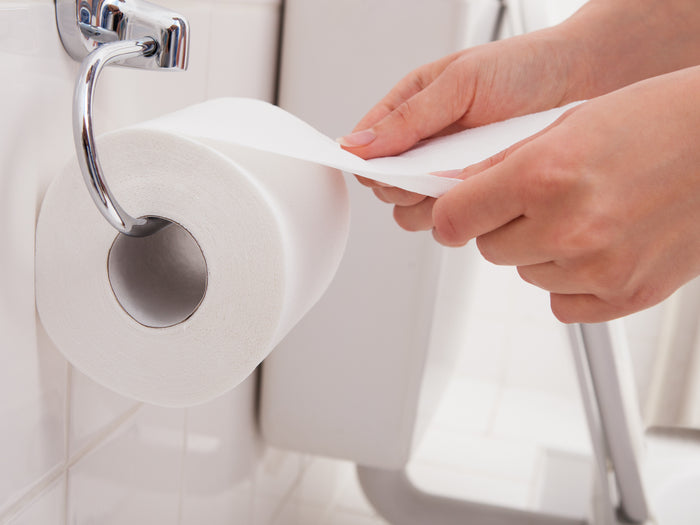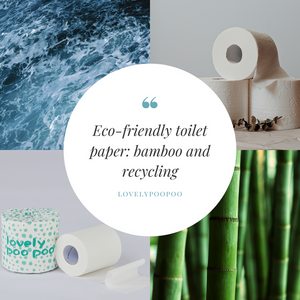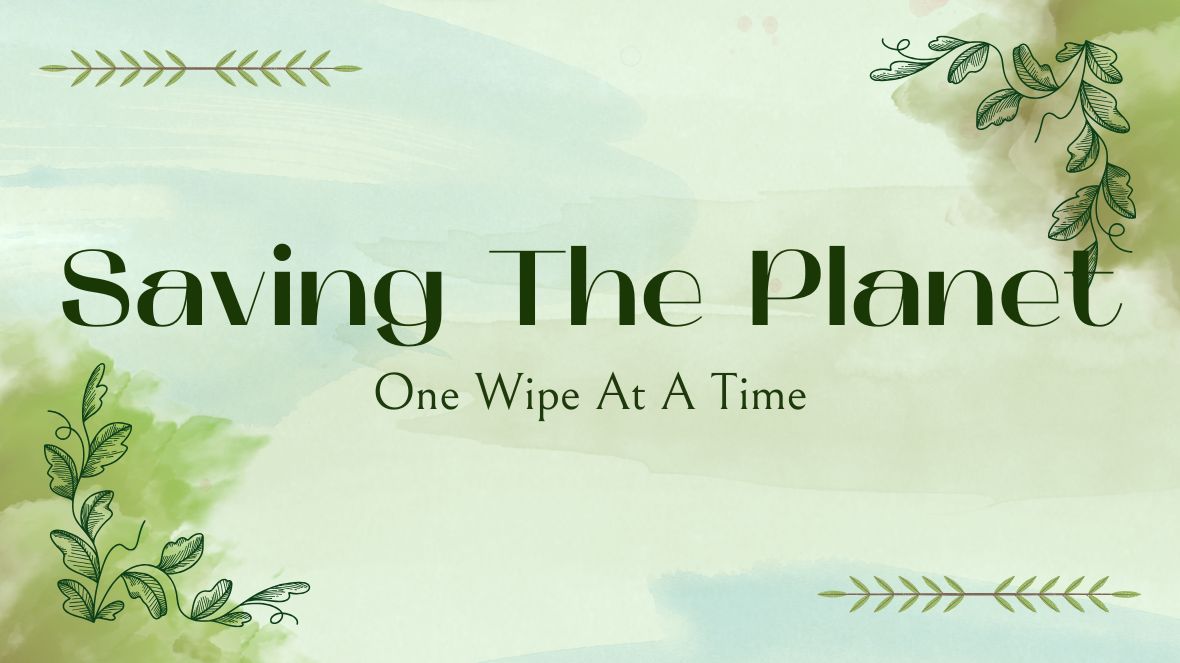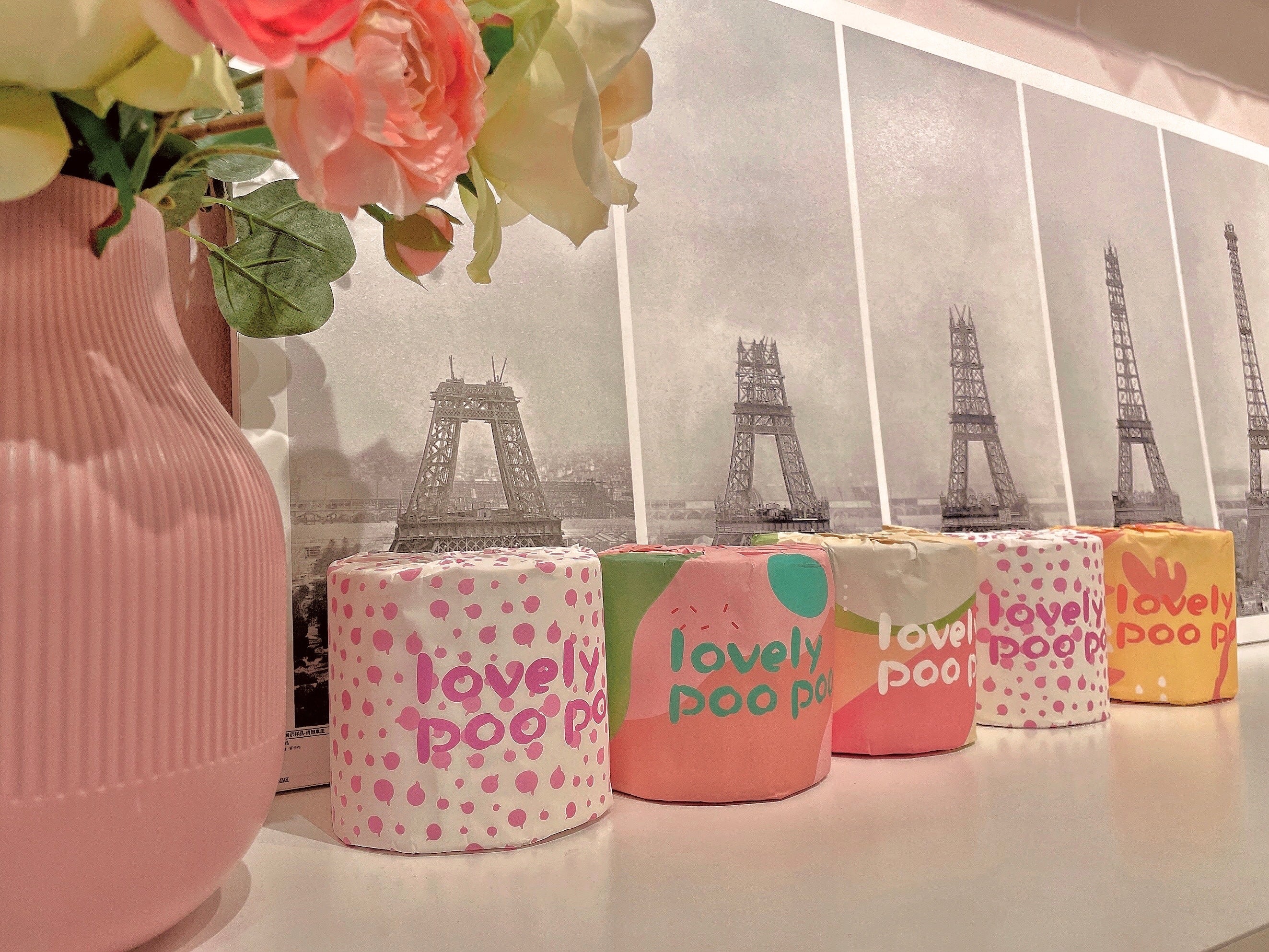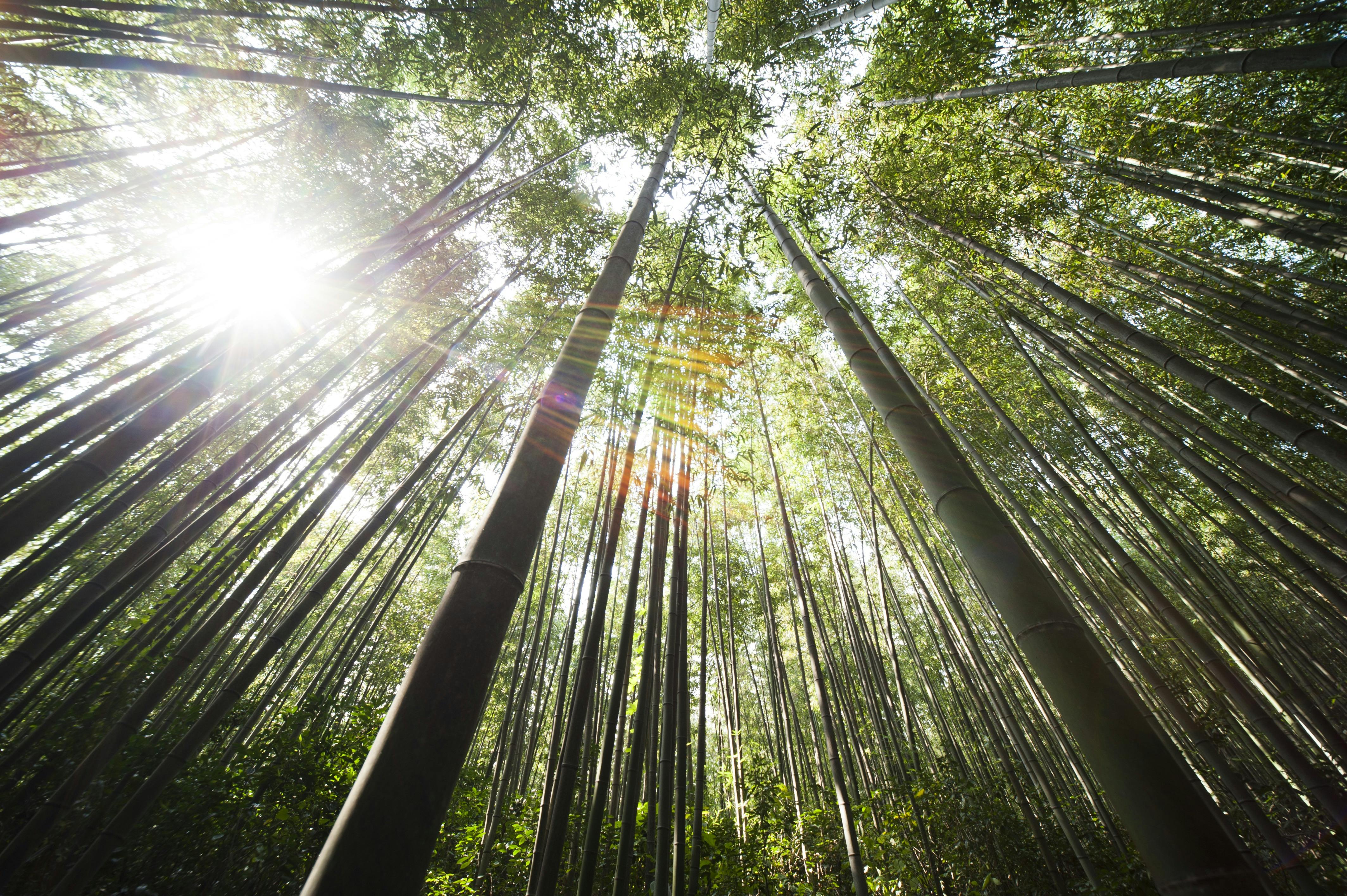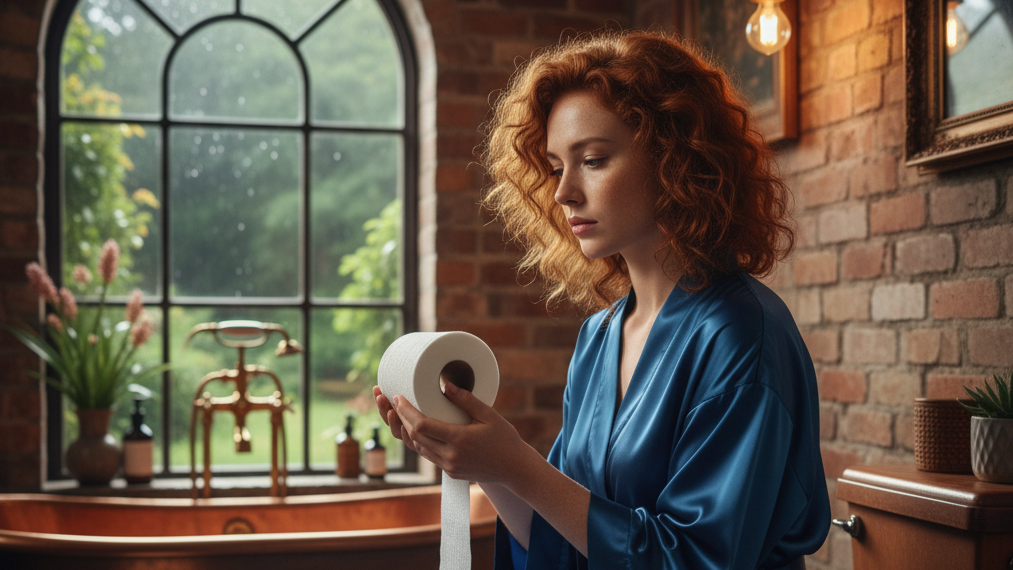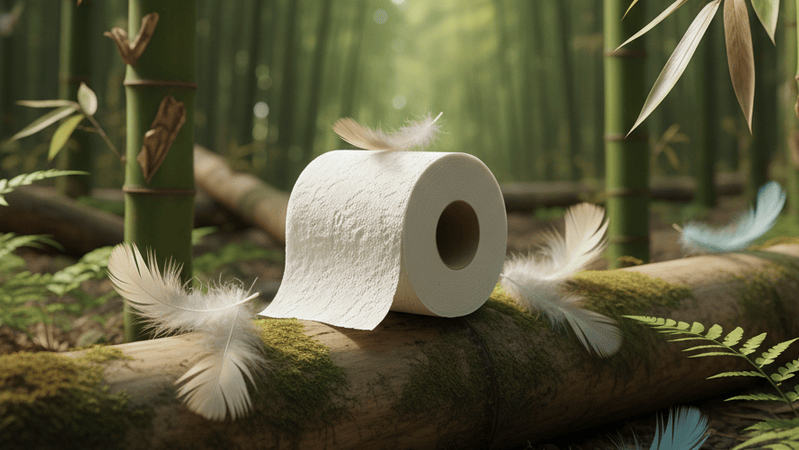Bamboo products, especially bamboo toilet paper, are a hot topic for environmental alternatives. Environmentally conscious consumers have many questions about this revolutionary product:
- Is bamboo toilet paper ecologically friendly?
- Is the bamboo toilet paper broken?
- Is the bamboo toilet paper septic tank safe?
- Is bamboo toilet paper better than ordinary toilet paper?
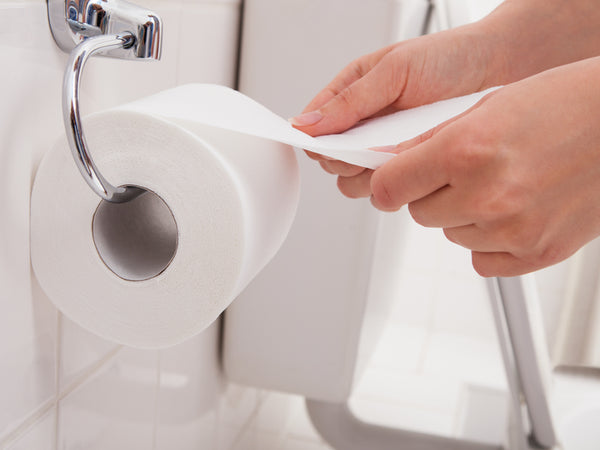
Using bamboo toilet paper instead of traditional toilet paper has many advantages. Knowing them will enable you to make informed purchase decisions and choose the best toilet paper for yourself, your family, and the environment.
Here is all the information you need to know about bamboo toilet paper!
How is bamboo toilet paper made?
You may be surprised at how simple and direct the process of making bamboo toilet paper is. Bamboo and ordinary toilet paper go through a similar manufacturing process - but as you might expect, bamboo paper products use bamboo instead of sawdust or recycled paper.
First, the manufacturer decomposes bamboo into fibers and adds the threads to the mixture to turn it into bamboo pulp. Once the fibers become pulp, they soak, press, and turn the pulp into the actual paper.
After that, they dry the long paper until they reach the appropriate humidity level. At this time, the manufacturer will grow the toilet paper roll into logs, cut it into smaller rolls, and then package it for sale.
In the final analysis, whether it is log pulp or bamboo pulp, the production process of toilet paper is the same.
Is bamboo toilet paper environmentally friendly?
Generally speaking, bamboo products are one of the most environmentally friendly products. They are not only made of sustainable materials but also can decompose entirely and quickly. Bamboo toilet paper is no exception.
So if you want to know whether bamboo toilet paper is environmentally friendly, the answer is yes. Bamboo is a renewable resource. It happens to be soft and strong. Therefore, bamboo products have much less impact on the environment and function.
Soft & Strong Material
Bamboo is a new environmental protection building material. Because bamboo can produce an incredible softness and excellent firmness, bamboo is the preferred material for a range of products from home decoration and clothing to cutting boards and guitars.
Bamboo is so soft that we use bamboo to create luxurious materials. Many of us use bamboo in the most sacred rooms in modern society: bedrooms and bathrooms. Bamboo chips, robes, and toilet paper are known for their softness and durability.
You may be surprised to find that the same material used to make the softest sheets is often used to make furniture and large-scale buildings. The study found that bamboo is a more elastic and flexible building material than wood, concrete, and steel.
Therefore, bamboo is becoming the preferred material for earthquake protection.
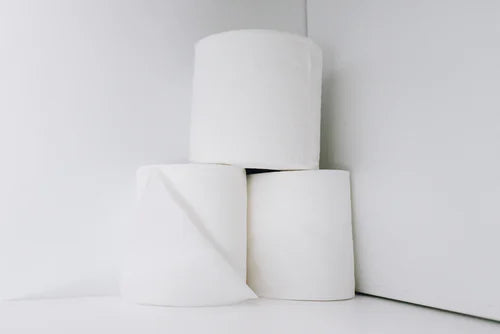
This bamboo is strong because rings separate its short joints. The early Chinese Navy even took the design of the factory as an inspiration when building bulkheads are separating ship areas. As a result, ships are stronger and less likely to sink.
Renewable Resource
Bamboo is a highly renewable resource that grows in large quantities in many parts. For example, bamboo has grown in Southeast Asia for millions of years. You can even find local bamboo in South America and parts of the United States.
Bamboo is not only a renewable resource because it can be found in many places. On the contrary, bamboo is ubiquitous because it is highly renewable. Bamboo is the fastest growing plant in the world. It can grow to 35 inches per day or 1.5 inches per hour!
Because bamboo grows very fast, it can be replenished immediately after use. Therefore, the amount of bamboo is easy to maintain to avoid excessive consumption.
Bamboo is undoubtedly an environmentally friendly choice for manufacturing any product. The fact that bamboo is soft, solid, and highly renewable makes it a preferred toilet paper material.
Is the bamboo toilet paper broken?
Many eco-conscious consumers are curious about the actual decomposition of bamboo toilet paper. Understandably, they are not only aware of the impact of toilet paper on the environment but also aware of its impact on the pipeline.
Bamboo toilet paper in the water pipe
Usually, we flush items such as paper towels, wet towels, and small toys down the toilet, which won't break at all, blocking the bathroom and the pipes. However, clogged pipes can affect all the lines in the house, especially if you have a septic tank.
Unfortunately, toilet paper can also clog pipes. In addition, using too thick towels can easily lead to headaches or congestion. As a result, many people will choose low-quality single-layer toilet paper to avoid additional pipeline costs. But before reaching the sandpaper of the dollar store, consider a less painful alternative.
Is the bamboo toilet paper septic tank safe? The use of bamboo toilet paper makes the toilet comfortable and convenient. In addition to being strong (soft) enough to use, bamboo toilet paper can be easily decomposed into water. This means that the water will flow freely in the pipe without being supported by piles of toilet paper, making it a safe toilet paper for the septic tank. No wonder some plumbers think bamboo toilet paper is one of the best pipe toilet papers.
Bamboo toilet paper in the environment
According to the BBC science focus, all the toilet paper will eventually break down. Glass bottles will ultimately break down, although they will take about a million years. Although traditional toilet paper will decompose in a shorter time, it still takes several years to decompose completely.
On the other hand, bamboo products decompose much faster. Mable, for example, produces a sturdy bamboo toothbrush that can last about three to four months. At the end of the toothbrush's life, the user only needs to pull out the bristles and throw the toothbrush into the composting box.

So, will bamboo toilet paper break down?
Finally, yes. Overall, the decomposition effect of bamboo toilet paper is much better than traditional toilet paper and even much better than recyclable toilet paper. Like a bamboo toothbrush, a thin piece of bamboo toilet paper will decompose rapidly and naturally, leaving no trace of existence on the earth or in your pipeline.
Is bamboo toilet paper better than ordinary toilet paper?
You may still be thinking, "is bamboo toilet paper better than ordinary toilet paper?" After all, this is a big problem. The simple answer is yes.
Overall, bamboo toilet paper is better than other toilet paper. Compared with bath towels made of recycled pulp and untreated pulp, bamboo has the upper hand in both.
In terms of softness, recycled toilet paper has the lowest softness. On the other hand, bamboo and untreated toilet paper are the softest. Bamboo can provide both soft toilet paper and thick toilet paper, giving you maximum comfort and required water absorption.
In terms of environmental protection, bamboo toilet paper, 100% recycled toilet paper - rather than only 30% or 40% recycled paper - topped the list. Virgin toilet paper came in third.
The advantage of bamboo in ecological friendliness lies in bamboo itself. Bamboo is a highly renewable resource. It grows fast and takes up less space. It does not use chemical fertilizers or pesticides.
However, consumers may be most worried about the price. This is because the price will ultimately determine whether people will buy products. Although virgin toilet paper is usually the cheapest, consumers can purchase recycled toilet paper and bamboo toilet paper at competitive prices.
In fact, Lovely Poo Poo offers a box of 12 rolls of sustainable bamboo toilet paper for less than $24!
Does bamboo toilet paper suit you?
Anyone who wants to switch to a greener lifestyle should consider replacing traditional (or recycled) bathroom tissue with bamboo. In general, bamboo toilet paper is soft and strong, but it decomposes well after use - so good that you don't have to deal with clogged pipes or septic tank systems anymore.
In addition, bamboo is a highly renewable material that multiplies and does not require too much space, chemical fertilizers, or pesticides. Because the impact of continuous use on the environment is so tiny, bamboo is the perfect material for making high-volume staple foods such as toilet paper.
Bamboo toilet paper is good for our earth, wallets, and hips, but not necessarily for everyone. By researching bamboo and bamboo toilet paper, you can choose the form suitable for your lifestyle and make the best decision for yourself and your family.
Are you interested in learning more about bamboo toilet paper? Then, sign up for our newsletter!
